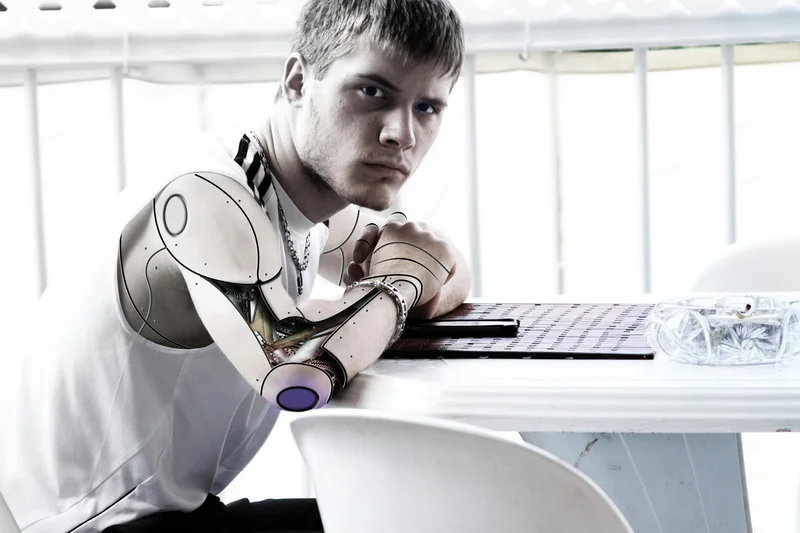AI News Today: The breakthroughs unfolding and their incredible potential
Generated Title: MIT Study: AI Job Displacement is Here, But It's Not the End of the World – It's a Chance to Reinvent Work
Here we go, folks! Another headline screaming about AI taking our jobs. This time, it's an MIT study saying current AI can handle tasks equal to almost 12% of U.S. jobs—that's a cool $1.2 trillion in wages. Now, I know what you're thinking: robot apocalypse, right? But hold on a second. Before we all start hoarding canned goods, let's dig a little deeper. I think this is less about mass unemployment and more about a massive opportunity—a chance to finally redesign work around human strengths.
The Iceberg Cometh—and It's Not Sinking the Ship
The MIT study, dubbed Project Iceberg (pretty cool name, right?), built a "digital twin" of the U.S. labor market. They simulated 151 million workers and mapped their skills against what AI can already do. And yeah, the numbers are eye-popping: 11.7% of the labor market, mostly in white-collar areas like finance, healthcare, and professional services. Areas we thought were safe, suddenly… not so much.
But here's the thing—and it's a huge thing—the study isn't predicting mass layoffs tomorrow. It's saying AI could do these tasks at a competitive cost. There's a canyon-sized gap between "can do" and "will do," and that gap is where the real story lies.
Think about the printing press. When Gutenberg fired that baby up, scribes didn't just vanish overnight. It took centuries for the world to fully adapt to mass-produced books. What did happen, though, was a revolution in how information spread, how people learned, and ultimately, how society was structured.
This AI "Iceberg" is the same. It's not a wrecking ball, it’s a catalyst. It's a force that will reshape how we work, what we value, and maybe even what it means to be human.
Here's the bit that excites me: AI is particularly good at those routine, soul-crushing tasks that frankly, no one wants to do. I mean, who dreams of spending their life filing paperwork or crunching spreadsheets? AI can take over those jobs, freeing us up to focus on what really matters: creativity, strategy, human connection. The stuff AI can't (yet!) replicate.
Take finance, for example. Instead of spending hours on data entry, imagine financial analysts using AI to quickly identify market trends and then focusing their energy on building relationships with clients and crafting personalized investment strategies. Or in healthcare administration, AI could handle the mountains of paperwork, allowing doctors and nurses to spend more time caring for patients.

That’s the potential, that’s the upside.
But, of course, there’s a catch. (Isn’t there always?) This transition won't be seamless. People will need to be retrained, new industries will emerge, and governments will need to figure out how to support workers during this shift. Tennessee, North Carolina, and Utah are already using the Project Iceberg platform to plan ahead, which is fantastic news. We need more of that proactive thinking.
And let's not forget the ethical considerations. As AI takes on more responsibility, we need to ensure it's used fairly and responsibly. We need to address potential biases in algorithms and make sure everyone benefits from this technology, not just a select few. It’s a big responsibility, and we can’t afford to screw it up.
I saw a comment on Reddit the other day that really resonated with me. Someone said, "AI isn't going to replace humans, but humans using AI will replace humans who don't." That's the key, isn't it? It's not about fearing the machine, it's about embracing it as a tool to amplify our own abilities.
The speed of this is just staggering—it means the gap between today and tomorrow is closing faster than we can even comprehend. According to a recent MIT report: AI can already replace nearly 12% of the U.S. workforce, the need to adapt is more urgent than ever.
A New Dawn for Human Ingenuity
What if, instead of fearing job displacement, we saw this as an opportunity to create a more fulfilling and equitable world of work? What if we invested in education and training programs that equip people with the skills they need to thrive in an AI-powered economy? What if we redesigned jobs to focus on uniquely human skills, like creativity, critical thinking, and emotional intelligence? What if we finally had the time to pursue our passions, to build stronger communities, to create a better world?
That's the future I see. A future where AI handles the mundane, and humans focus on the magnificent. It won't be easy, but it will be worth it.
